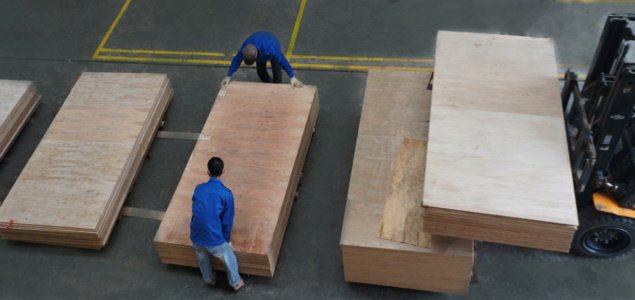In a bid to stand united against escalating tensions, European woodworking leaders are calling on Japan to consider halting Russian wood imports. With Russia’s actions in Ukraine prompting swift sanctions, this move could make a real impact on Russia’s economy and show solidarity on a global scale. As talks progress, it’s clear that working together in times of uncertainty is key to facing challenges head-on.

In the aftermath of Russia’s invasion of Ukraine and the ensuing economic sanctions, the European Organization of the Sawmill Industry (EOS) and the European Confederation of Woodworking Industries (CEI-Bois) are steadfastly advocating for a decisive measure: urging Japan to consider implementing a ban on Russian wood products, encompassing lumber and glue laminated timber.
Japan, a notable importer of Russian wood products, notably relied on Russia for 13% of its total lumber imports in 2023, according to data from the Japanese Lumber Importers Association. However, amidst the evolving geopolitical landscape and growing concerns over Russia’s actions, the European organizations are pressing Japan to reassess its dependency on Russian imports, citing broader implications for global stability and solidarity.
Drawing parallels with the European Union’s swift response to halting imports of Russian wood products post-conflict, EOS and CEI-Bois highlight the potential ripple effects of coordinated efforts by Japan. Such a unified stance to cease Russian wood imports could wield significant influence on Russia’s economy, given its substantial role in the global woodworking industry.
As discussions loom on the horizon, the European sawmill industry eagerly anticipates engaging in dialogue with Japanese counterparts to delve into the feasibility and ramifications of a potential ban on Russian wood imports. Stressing the paramount importance of international collaboration and collective action, both organizations underscore the imperative of solidarity in addressing the repercussions of Russia’s actions in Ukraine and upholding shared principles of peace and stability.
In navigating these challenging times, the call for unity resonates strongly within the woodworking industry and beyond, underscoring the interconnectedness of global economies and the collective responsibility to uphold values of justice and solidarity on the world stage. Through dialogue and concerted action, the pathway towards a more resilient and principled international community emerges, where nations stand together to confront shared challenges and forge a brighter future for generations to come.
Source: Fordaq.com




